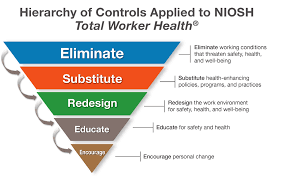Total Worker Health 2022 Best

For this assignment we will focus on Total Worker Health, Drug Testing, and Worker Privacy. So, to what extent does an employer have a right to know what an employee does after hours?
Total Worker Health
Please read all instructions. So, as you can imagine, this becomes a very complicated issue of at what point does an employer have responsibilities for a worker’s lifestyle outside of the workplace? If, in fact, it is a benefit for workers to eat healthy, get enough sleep, not do drugs, exercise. etc., to what extent is an employer responsible for monitoring employee activity during off-hours? To what extent does an employer have a right to know what an employee does after hours? To what extent do you want your employer knowing what you do after hours?
Total Worker Health
As the safety and health professional for your company, what policies should be put in place to protect the employer, but also protect worker privacy? The National Institute for Occupational Safety and Health has, for some time now, been promoting a concept call Total Worker Health (TWH) (CDC). (Links to an external site.) TWH is based on both the concept that integrating the protection of worker health and safety with evidence-based health promotion can keep workers safer and healthier on the job, and that exposure to harmful conditions or chemicals does not start and stop at the door to the workplace.
Total Worker Health
Therefore, there has been a push to encourage employers to do more in the way of wellness to integrate health protection and health promotion based on evidence that poor worker health not only affects direct medical expenditures but also productive work output. In other words, many aspects of a worker’s life, such as nutrition, sleep, tobacco or vaping use, psychosocial exposures, and outside environmental exposures, are intertwined with workplace exposures in such a way that the outcomes of these various exposures cannot be separated. This concept is expressed in a relatively new term: “exposome.”
Total Worker Health
NIOSH Exposome and Exposomics (CDC) (Links to an external site.) says: The exposome can be defined as the measure of all the exposures of an individual in a lifetime and how those exposures relate to health. An individual’s exposure begins before birth and includes insults from environmental and occupational sources. Understanding how exposures from our environment, diet, lifestyle, etc. interact with our own unique characteristics such as genetics, physiology, and epigenetics impact our health is how the exposome will be articulated. So, many employers are encouraging wellness programs.
Total Worker Health
But let’s say an employer provides incentives for workers to wear a Fitbit or an Apple Watch to encourage healthy habits. Check out this article, “When your employer gives you a Fitbit, who owns the data?” (Advisory Board). (Links to an external site.) Or how about this article, “Meet ‘Chet.’ His Employer Knows What Time He Woke Up Today” (Wall Street Journal) (Links to an external site.) Medical or Recreational Use of Marijuana Given our discussion of the gig economy and short-term workers, we know that workers can, and often do, work in multiple environments, adding to the question of who is responsible.
Total Worker Health
It becomes even more complicated when you live in a state or country where there is legal medical or recreational marijuana. Clearly, we don’t want impaired workers on the job. Unlike alcohol, there is not yet a definitive test connecting cannabis use and impairment. So to what extent can, or should, an employer have expectations about “legal” cannabis use (medical or recreational) while not on the job? Consider these studies first. In an original study in 1985, “ten experienced licensed private pilots were trained for 8 hours on a flight simulator landing task. https://youtu.be/EukNdiIlYpY
Additional Files







